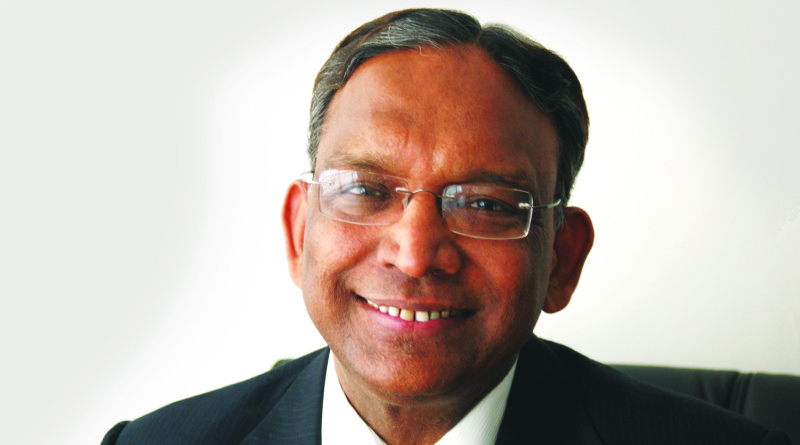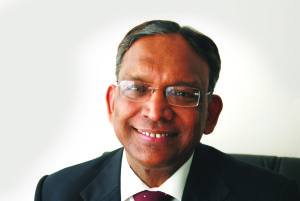Care with Compassion
The New Mental Health Care Bill, 2016 is a welcome move as it seeks to provide persons with mental illness the right to equality of treatment, improve their access to affordable, good quality health services and protection from inhuman and degrading treatment. It guarantees every person the right to mental health care and decriminalises suicide.
Dr Vinay Aggarwal
The New Mental Health Care Bill, 2016 which repeals the existing Mental Health Act, 1987 (said to be vastly different in letter and spirit), seeks to use nationally and internationally accepted medical standards. Mental Health Care (MHC) in India continues to be bogged down by lack of resources and awareness.
The new bill has provisions to introduce a Mental Health Review Commission, to set up Central and State authorities, and to increase the number of healthcare institutions. The amendments to the bill were introduced in 2013, when the decision to repeal the 1987 Mental Health Act was passed. The highlight of the new bill is decriminalisation of attempt to suicide. Until this bill becomes law, suicide and attempted suicide are criminal offences, and the offender is charged under section 309 of IPC.
The MHC bill will override this law. It states that the person attempting suicide will be presumed to be ‘under severe stress’ unless otherwise proven, and is not punishable. The move is welcomed by mental health care professionals across the country, as it takes away the burden of implicating a mentally ill person in a crime that he or she had no sane control over.
The bill provides for mental healthcare and services for persons with mental illness, and also decriminalises suicide. The bill ensures every person shall have a right to access mental healthcare and treatment from mental health services run or funded by the appropriate government. It also assures free treatment for such persons if they are homeless or poor, even if they do not possess a Below Poverty Line card.
The MHC bill aims to take a rights-based perspective on mental health care, rather than focusing just on treatment. It ensures that mental health care is affordable and accessible without discrimination. It prohibits Electroconvulsive Therapy on minors. ECT is allowed on adults, but with anaesthesia and muscle relaxants.
The bill seeks to redefine mental illness, to better understand various conditions that are persistent among the population. It says mental illness is a ‘substantial disorder of thinking, mood, perception, orientation or memory that grossly impairs judgement, behaviour, capacity to recognise reality or ability to meet the ordinary demands of life’. Mental conditions related to alcohol or drug abuse were also included in the definition. Mental retardation, characterised by incomplete development of mind of a person, is not included as ‘mental illness’
Generally, people with mental illness are helpless and hopeless. The Lancet Commission on Adolescent Health and Well-being reported that suicide was the top cause of death among the youth of India, which reflected deeply on the country’s mental health condition. The bill seeks to redefine mental illness, to better understand various conditions that are persistent among the population.
One of the clauses in the bill decriminalises suicide, stating that a person who attempts suicide should be presumed to have severe stress, and shall not be punished. Notwithstanding anything contained in section 309 of the Indian Penal Code, any person who attempts to commit suicide shall be presumed, unless proved otherwise, to have severe stress and shall not be tried and punished under the said Code.
As per the bill, it will be the government’s duty to provide care, treatment and rehabilitation to a person, having severe stress and who attempted to commit suicide, to reduce the risk of recurrence of any attempt. The bill also provides that a person with mental illness will have the right to make an advance directive that states how he she wants to be treated for the illness and nominate a representative.
What is mental illness?
Mental illness is not an intellectual disability, unlike mental retardation. These people are intelligent, and can take up regular employment, which could motivate them to lead a productive life. India has an abysmal level of awareness and understanding about mental health. This was reportedly evident even within the Parliament, where confusion persisted among those who spoke at the Rajya Sabha meeting. Some parliamentarians used ‘mental illness’ and ‘mental retardation’ interchangeably, while also confusing ‘mentally ill’ with ‘mentally challenged’.
According to a report, India has more than 70 million people suffering from some form of mental disorder, but there are only three psychologists and lesser psychiatrists for every million patients. There is a huge number of mentally ill people for very little professionals who can take care of them. The main challenge facing the mental health care sector today, besides a lack of funding, is the lack of mental health professionals, especially in government institutions.
A report published in the Lancet to mark the launch of the China-India Mental Health Alliance in May 2016 reveals shocking statistics: six states in India have absolutely no public mental care institutes. These Northern and Eastern states have a population of 56 million. The rest of India has 443 public institutes.
Mental illness was earlier defined as any mental disorder other than mental retardation. The Bill passed by Rajya Sabha defines mental illness to mean a disorder of thinking, mood, perception, orientation or memory. Such a disorder impairs a person’s behaviour, judgement, capacity to recognise reality or ability to meet ordinary demands of life. This definition also includes mental conditions associated with substance abuse, and does not include mental retardation.
There are no official estimates currently. In 2005, it was estimated that 6-7% of the population suffered from mental disorders, and about 1-2% suffered from severe mental disorders such as schizophrenia and bipolar disorder. Nearly 5% of the population suffered from common mental disorders such as depression and anxiety. However, real numbers could be higher, as mental illness often goes underreported due to the associated stigma. The World Health Organization (WHO) has recently estimated that 1 in 4 persons will be affected by some form of mental illness once in their lifetime.
The Bill states that every person would have the right to specify how he would like to be treated for mental illness in the event of a mental health situation. An individual will also specify who will be the person responsible for taking decisions with regard to the treatment, his admission into a hospital, etc. The Bill guarantees every person the right to access mental health care and treatment from the government. This right includes affordable, good quality, easy access to services such as minimum mental health services in every district. Persons with mental illness also have the right to equality of treatment and protection from inhuman and degrading treatment.
Currently, attempting suicide is punishable with imprisonment for up to a year and/or a fine. The Bill decriminalises suicide. It states that whoever attempts suicide will be presumed to be under severe stress, and shall not be punished for it. The Bill requires that every insurance company shall provide medical insurance for mentally ill persons on the same basis as is available for physical illnesses.
The Bill mandates the central and state governments to ensure access to mental health services in every district. These will include outpatient and inpatient services, hospitals, and community-based rehabilitation establishments. However, the financial memorandum of the Bill does not estimate the expenditure required to meet the obligations under the Bill nor does it provide details of the sharing of expenses between the central and state governments. Without the allocation of adequate funds, the implementation of the Bill could be affected. The Standing Committee examining the Bill had noted that public health is a state subject. Since several states face financial constraints, the central government might have to step in to ensure funds for the implementation of the law.
The Bill does not prescribe specific penalties for non-compliance with several of its provisions. A general punishment of imprisonment up to 6 months or a penalty of up to Rs 10,000, or both, is provided. The absence of specific penal provisions might create ambiguities with regard to the implementation of the Bill. Mental Healthcare Bill seeks to decriminalise the attempt to commit suicide. The most important feature of this Bill is that a person attempting suicide shall be presumed, though rebuttable, to be suffering from severe stress.
(The author is ex-National President, Indian Medical Association and Founder Chairman, Max Superspeciality Hospital, Vaishali (GHZ))


